Goal setting promises to help you unlock your full fitness potential - here's how
A proven way for you to maintain motivation? We're sold...


Fun fact: a study from fitness app Strava has found that 94% of athletes who practice goal setting remain active nine months later.
That's pretty impressive and shows that having a goal - whether that's achieving your first pull-up, improving your 10km time, or holding a crow yoga pose - might just be the key to keeping you focused on your fitness goals for the year ahead.
You might think that getting fit is as simple as committing to weekly HIIT workouts, Joe Wicks workouts, or weight training - but actually, exercise motivation can feel all but non-existent when your 7am alarm clock goes because it's dark and practically baltic outside.
That's where goal setting comes in - proven to be a key way for you to both keep up your motivation and further maintain a certain level of activity after the initial period.
We've spoken to Strava triathlete Werdah Hussain and sports psychologist Professor Andy Lane to break down what exactly it is about goal setting that's so great for keeping motivation - and fitness levels - high.
Keep scrolling - and don't miss our guides to achieving New Year's resolutions, self care ideas, and how to manifest, while you're here.
Goal setting is important - here's why
What, in its simplest sense, is a goal?
First things first: what is a goal, in its simplest sense? "A goal is a person’s ambition, desired outcome, or something they want to happen," shares Lane.
Marie Claire Newsletter
Celebrity news, beauty, fashion advice, and fascinating features, delivered straight to your inbox!
Think of completing a challenge, like running a marathon, losing fat (read our fat loss tips and round up of harmful diet fads, here), or winning a race. Or, the goal could be a subtler micro-goal, such as changing a habit or routine or learning something new.
"An example? Running with relaxed arms. Changing your technique allows you to run more smoothly and efficiently, which could, in turn, make reaching a new running personal best more likely," he continues.
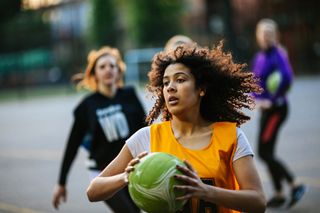
Why are goals important?
You'll probably have guessed by now that goals are pretty useful for motivation, right - but do you know how that in turn equates to both physical and mental fitness?
Look at it this way - having a goal helps with motivation, motivation helps you reach said goals, and reaching said goals boosts your mental health and well-being. "Goals help provide focus and direction," explains Lane. "As a consequence, this enables us to see what we need to focus on, and importantly, helps us mobilise effort to do the task. When we know the goal is hard to achieve, we raise our efforts accordingly."
What are the benefits of goal setting?
There are a whole load, ranging from the physical to the mental. Benefits include:
- Help you to achieve your ambitions
- Help you drive motivation
- Help you to stay focused
- Help you to facilitate growth
- Help you to avoid overwhelm
- Help you to get fitter, both physically and mentally
- Help you to benchmark your progress
- Help to make the journey more enjoyable by offering the potential of reward.
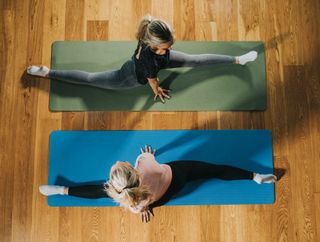
How to set an effective goal: your guide
Did you know? The SMART acronym is generally used to help guide goal setting, explains Lane. "There is lots of evidence for setting specific goals versus vague goals," he explains. So, do make sure you've really nailed down what your specific goal is.
S - Specific to what you want to accomplish
Goals can range from outcome goals, to process goals, to learning goals.
For example, if you wish to lose weight - an outcome goal would be, "I wish to reduce my waist from 38 inches to 32 inches". A process goal would be "I will eat smaller meals and eat one rather than two chicken thighs for dinner," and a learning goal would be "I wish to learn about the nutritional value of my food and eat nutritionally rich food."
M - Measurable
There's no point in having a goal if you have no means of measuring when you've achieved it. "You need to see yourself achieving the goal," shares Lane. "Feedback is also helpful - it builds confidence and drives the belief that you can achieve the goal."
A - Accepted
You need to accept and own your goals. Not sure what that means? Make sure they are so personal to you that deep down in your soul, you want to achieve them. That's where your motivation will come from.
"They are your goals," explains Lane. "Make sure you commit and know what it takes to achieve it before committing."
R - Realistic
As in - there's no point in setting yourself a goal of flying to the moon as it's simply not doable (unless you've got Elon Musk on speed-dial). "Your goal needs to be achievable," shares Lane. "Set a realistic target which takes into account both your skills and the effort you wish to invest."
T - Time-limited
And finally, have a time frame in mind - because there's no better way to stay motivated than knowing you need too, as the big day is coming up. "By setting a limited amount of time for the goal to be completed in, you are forced to prioritise your time and resource to make it happen," he explains.

5 simple tips for setting and achieving a goal
1. Use the "if/then" planning technique
Not heard of it? "If then planning helps you to achieve your goals by making you identify your barriers and further, the solutions to them, too," shares the expert. In short, it helps you to arm yourself with the best actions should a barrier arise.
"Write solutions next to potential hurdles or barriers and repeat it to yourself five times," he recomends. "For example, if I want to train for an hour after work and I find I always end up doing something else, then I will say to myself – it costs you a fortune, your health and fitness matter, and going to the gym makes you happier."
Got it?
2. Record your progress
Apps like Strava are designed to help. "Goal setting has to build beliefs and for beliefs to increase, you need to see progress," shares Lane.
Don't miss our guides to the best fitness apps and the best running apps, here.
3. Compare and contrast
That is, analyse your dream goals and all the barriers that might get in the way of you achieving it. "By comparing and contrasting, you remind yourself of just how hard you have to work to achieve the goals," he shares.
4. Utilise positive self talk
Using psychological skills - such as positive reinforcement, visualisation, and encouraging self-talk - can actually be a really powerful way of reframing a negative mindset and the narrative around an event.
Try this: "See yourself achieving the goal and internally narrate what is needed to deliver success," advises Lane.
5. Break down what is needed to achieve each goal
And finally, make sure you're clear on exactly what is needed to reach your goal in the first place. "As above, with each outcome goal, set a process goal and a learning goal, too, so you know what is needed to actually achieve it," shares the expert.
"I love having a goal to work towards - it gives every workout a purpose."
Werdah Hussain is a triathlete who is part of the 10 Iron Women group. She regularly sets goals for herself on Strava and is running a broader campaign for British Asian female representation, including a 50/50 gender split at an Ironman event.
"I set a goal to complete an ironman - that's a 3.8k swim, a 180k bike ride, and a full marathon. It definitely felt like a big, hairy, audacious goal - I learned to swim around three years ago so honestly swimming nearly 4k was quite scary."
"Although I'd done a few half marathons and ran regularly, I'd never run a full marathon. I set my sights on Ironman Barcelona and completed it in October 2021."
"I love having a goal to work towards, it meant that every time I was running, swimming or cycling - it had a purpose. It meant that on the days where I really didn't want to, which I found most with swimming, I felt the push to do it anyway. I also committed to doing it with the 10 ironwomen group - with a whole bunch of women determined to complete an ironman too. I didn't want to let the team down, and this was incredibly motivating."
"The goal was also a way to measure progress - how much closer was I getting to those distances that seemed insane at first? Finally, I love a bit of visualisation. I visualised how it would feel on race day to conquer an ironman, and how it would feel to cross the finish line."

Ally Head is Marie Claire UK's Senior Health, Sustainability, and Relationships Editor, nine-time marathoner, and Boston Qualifying runner. Day-to-day, she works across site strategy, features, and e-commerce, reporting on the latest health updates, writing the must-read health and wellness content, and rounding up the genuinely sustainable and squat-proof gym leggings worth *adding to basket*. She's won a BSME for her sustainability work, regularly hosts panels and presents for events like the Sustainability Awards, and saw nine million total impressions on the January 2023 Wellness Issue she oversaw. Follow Ally on Instagram for more or get in touch.
-
 Zendaya's reaction to awkward kissing question during Challengers interview has gone viral
Zendaya's reaction to awkward kissing question during Challengers interview has gone viral'Uncomfortable' doesn't begin to cover it
By Iris Goldsztajn
-
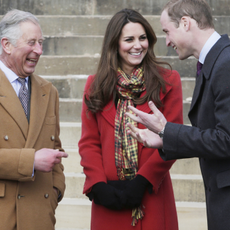 Prince William feels 'immense responsibility' amid Kate and Charles cancer diagnoses
Prince William feels 'immense responsibility' amid Kate and Charles cancer diagnosesHe has a lot on his plate
By Iris Goldsztajn
-
 Taylor Swift just teased a 'timetable' for her new album release
Taylor Swift just teased a 'timetable' for her new album releaseThe wait is torture
By Iris Goldsztajn
-
 After testing dozens of designs—these are the best air fryers money can buy, according to team Marie Claire UK
After testing dozens of designs—these are the best air fryers money can buy, according to team Marie Claire UKPlus a nutritionist's expert insights on the popular cooking method
By Grace Lindsay
-
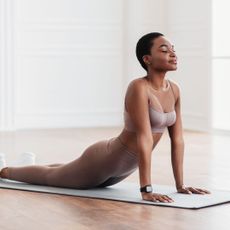 This Pilates ab workout is a combination of all the most effective exercises for a strong body
This Pilates ab workout is a combination of all the most effective exercises for a strong bodyThis one's a good'un.
By Ally Head
-
 These are the only bodyweight exercises experts reckon are *actually* effective
These are the only bodyweight exercises experts reckon are *actually* effectiveTry from home, the garden, or the gym.
By Ally Head
-
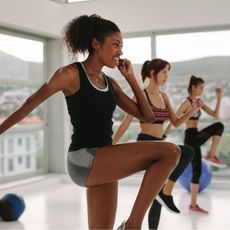 This is the best HIIT workout you can do, according to world-renowned trainer Kayla Itsines
This is the best HIIT workout you can do, according to world-renowned trainer Kayla ItsinesYep, you can do it from home.
By Ally Head
-
 A diabetes drug is going viral for its supposed weight loss benefits—but there’s a seriously dark problem here
A diabetes drug is going viral for its supposed weight loss benefits—but there’s a seriously dark problem hereSearches for weight loss injections have soared by 134%.
By Ally Head
-
 Best cycling shorts: Fitness writers share the only 9 pairs worth your ££
Best cycling shorts: Fitness writers share the only 9 pairs worth your ££Tried and tested.
By Ally Head
-
 Cold water therapy is loved by Lizzo and Harry Styles - here's how it could boost your energy, fitness and more
Cold water therapy is loved by Lizzo and Harry Styles - here's how it could boost your energy, fitness and moreLearn all about why the Wim Hof method could be worth introducing into your day-to-day.
By Ally Head
-
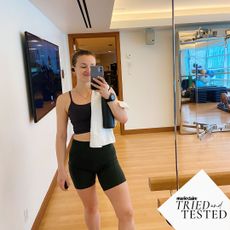 "After a month of trying Reformer Pilates, I was *very* surprised at how much my body changed"
"After a month of trying Reformer Pilates, I was *very* surprised at how much my body changed"If it's good enough for Harry Styles…
By Ally Head